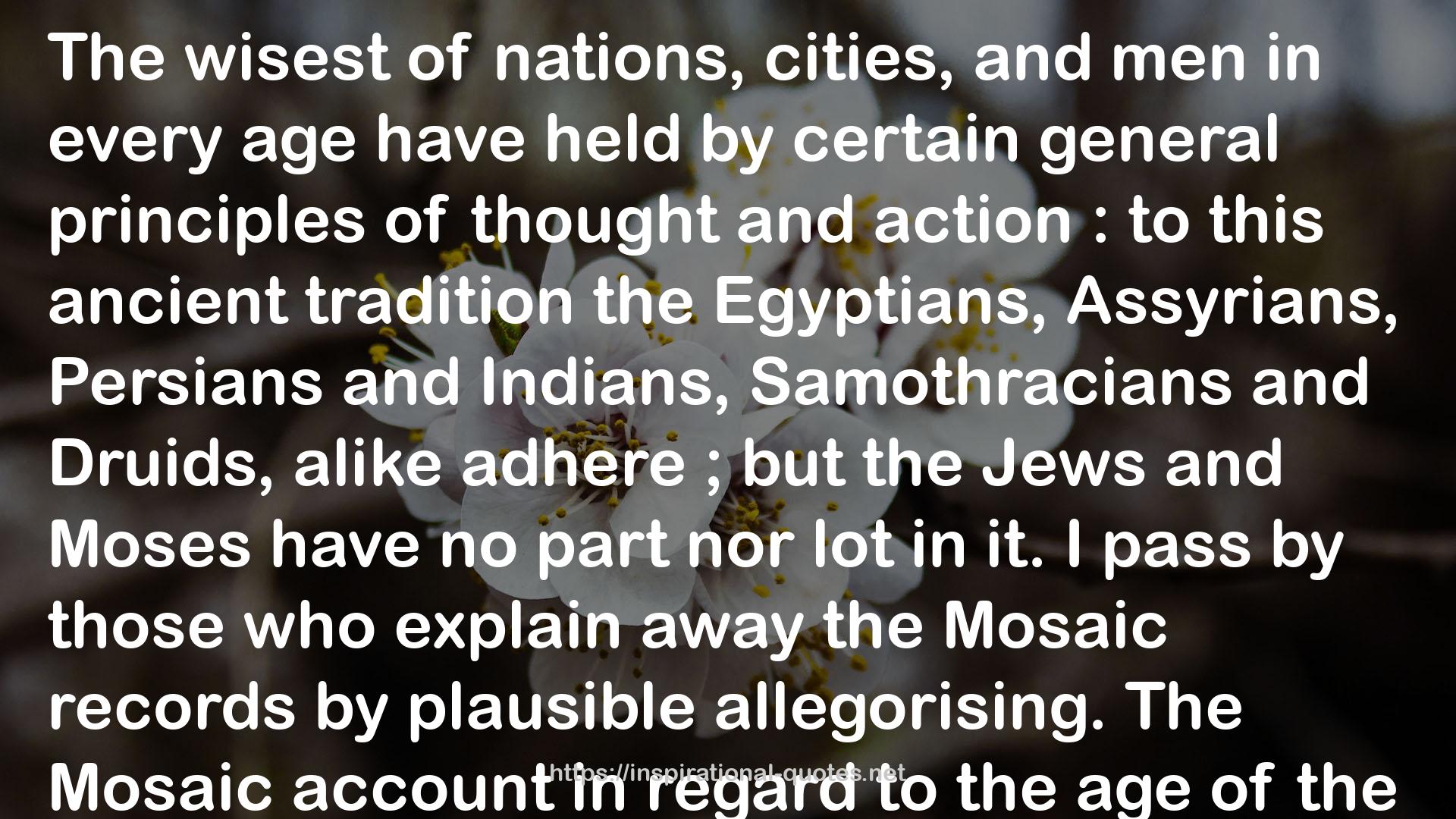" The wisest of nations, cities, and men in every age have held by certain general principles of thought and action : to this ancient tradition the Egyptians, Assyrians, Persians and Indians, Samothracians and Druids, alike adhere ; but the Jews and Moses have no part nor lot in it. I pass by those who explain away the Mosaic records by plausible allegorising. The Mosaic account in regard to the age of the world is false: the flood being in the time of Deucalion was comparatively recent. Neither the teaching nor the institutions of Moses have any claim to originality. He appropriated doctrines which he had heard from men and nations of repute for wisdom. He borrowed the rite of circumcision from the Egyptians. He deluded goatherds and shepherds into the belief that there was one God — whom they called the Highest, or Adonai, or the Heavenly, or Sabaoth, or whatever names they please to give to this world — and there their knowledge ceased. It is of no import whether the God over all be called by the name that is usual among the Greeks, or that which obtains among the Indians or Egyptians. "
― Celsus , The Fragments of Celsus
